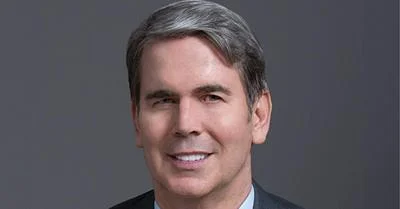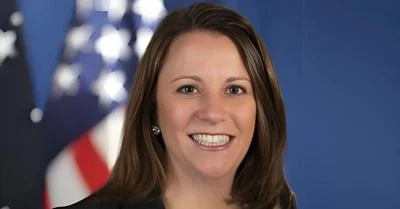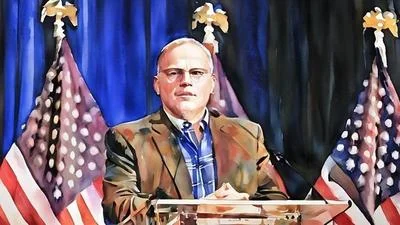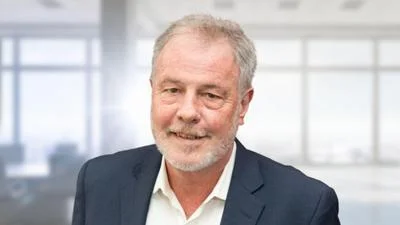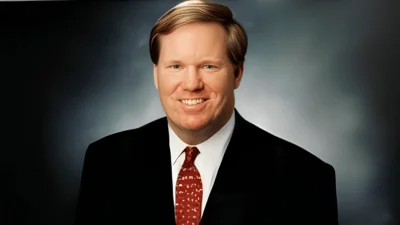The Congressional Record is a unique source of public documentation. It started in 1873, documenting nearly all the major and minor policies being discussed and debated.
“TRIBUTE TO MAYOR PAUL TAUER” mentioning the Department of Interior was published in the Extensions of Remarks section on pages E2520-E2521 on Dec. 9, 2003.
The publication is reproduced in full below:
TRIBUTE TO MAYOR PAUL TAUER
______
HON. THOMAS G. TANCREDO
of colorado
in the house of representatives
Monday, December 8, 2003
Mr. TANCREDO. Mr. Speaker, profound political change has come to Aurora, Colorado, and that change provides an opportunity to reflect on the contributions of Mayor Paul Tauer and City Councilors Barb Cleland, Bob LeGare, Bob Perosky and Dave Williams.
These dedicated public servants had a profound impact on a growing and vibrant city. Aurora has grown dramatically and it is now one of the largest city in the nation--indeed people now refer to the Denver-
Aurora Metro area. Aurora's population is approaching 300,000, or almost the size of Buffalo, New York and St. Paul, Minnesota. During this period of rapid growth, these civic leaders insured that services kept pace with growth, and that growth met the needs of the residents.
Few people contributed more to this process than the out going Mayor Paul Tauer. He served as Mayor from 1987 to 2003, and sat on the city council for eight years prior to his election as Mayor. During his tenure, the face of the city was literally reconfigured to respond to the demands of the 21st century.
During the Mayor's tenure Fitzsimmons Army Medical Center was closed and it was replaced by the largest medical facility between Chicago and California. The former Fitzsimmons campus is now home to the University of Colorado's Health Science Center, the University Hospital, the Lion's Eye Bank, the University Physicians HMO and a large and growing biotechnology research park which has become a magnet for research and development firms in the Rocky Mountain Region. Soon the former Fitzsimmons campus will be the location of a new Denver Children's Hospital and a new Veterans Administration Hospital, replacing the antiquated facility in Denver. The Fitzsimmons campus will employ more than 30,000 people and generate untold millions in revenue.
The phenomenon of Fitzsimmons was not the only notable development contributing to the increasing dynamism of Aurora. Buckley Air National Guard Base became Buckley Air Force Base, a new facility of the Air Force Space Command. Ongoing growth at Buckley is likely to continue as the role of space-based defense in our national security grows to meet the requirements of military transformation and the war on terror. It was Mayor Tauer who worked actively with the Air Force to make the new base a reality ensuring that the requirements for national security were balanced against the requirements of a growing urban community.
Mayor Tauer also presided over the redevelopment of ``original'' Aurora and development of the Southeast area of the city. This revitalization was accomplished by a city-wide growth management plan which created realistic, yet forward-looking standards for ``quality'' and ``smart'' growth. Aurora's implementation for these policies has won widespread recognition for its excellence.
Perhaps in no area was Mayor Tauer's foresight more evident than his leadership on water resource issues. During his time in office Aurora has acquired new water resources, increased distribution and treatment facilities and implemented innovative recycling and drought management policies. The result has been an effective doubling of water system capacity. Among his most notable achievements was forging an agreement with the Department of Interior's Bureau of Reclamation that ensured the city's storage facility in the Bureau's Pueblo Reservoir. I am currently working with Representatives Beauprez and Hefley to codify that agreement in federal law.
Mr. Speaker, Mayor Tauer has been the force that has given shape, form and a distinctive identity to Aurora. Nowhere is this more evident than in the new Aurora Municipal center. The new urban core of the city includes a recently opened municipal building, public safety building, a central library and museum. Together, they constitute the virtual center of this increasingly urbane metropolis. This distinctive city locus took shape during the tenure of Mayor Tauer.
Paul Tauer did not do it alone. Working with him for growth and progress in Aurora was an exceptional cadre of city councilors whose vision and understanding contributed mightily to the city.
Barb Cleland served on the council for two decades and focused on insuring that public safety and public services in Aurora were unrivaled. An early advocate of victims' rights, her leadership and influence extended beyond Aurora to the National League of Cities and other municipal groups. The valuable contributions to all areas of city governances will be sorely missed.
Edna Mosely spent 12 years on the city council. Edna, whose husband was one of the original ``Tuskegee Airmen,'' worked tirelessly on behalf of military veterans and was actively involved in military cultural diversity issues. She served with distinction on a host of city boards including the Fitzsimmons Commission and served with distinction on the Fitzsimmons Redevelopment Authority Executive Committee, Aurora Economic Development Council, Denver International Airport Business Partnership, Lowry Economic Recovery Project, Adams County Economic Development Council, Community College of Aurora Advisory Council and Aurora's Business Advisory Board.
In 10 years on the council John Parosky was a voice for fiscal prudence and effective and efficient government. He brought his financial expertise to bear in ensuring that tax dollars were used as optimally as possible. His commitment to the city can also be found in his work; he devoted countless hours to make Aurora a better place through his work on the Economic Development Committee, E-470 Authority, Aurora Chamber of Commerce, Utility Budget Committee, Visitors Promotion Fund, Aurora Education Foundation, Spirit of Aurora, Community Housing Services and Aurora Rotary club.
An eight year veteran of the council, Bob LeGare was a passionate advocate of small business, who took in a leadership role in many economic development programs. Bob was devoted to the importance of small business, he worked to make Aurora a partner with business to provide jobs and services. He provided leadership on a variety of economic development initiatives including the Fitzsimmons Redevelopment Authority, Colorado Commission on Taxation, Aurora Citizens Advisory Budget Committee, Colorado Office of Regulatory Reform Advisory Board, Aurora Chamber of Commerce, Aurora Association of Realtors and the Aurora Realtor Governmental Affairs Committee and further contributed to the community through Leadership Aurora, Aurora Museum Foundation, and Aurora Open.
Dave Williams served 11 years as a member of the Aurora City Council. He worked to improve the efficiency of the city by encouraging better review processes and more efficient administration. He has been a leader in the business community as illustrated by his experiences on the Aurora Economic Development Council, E-470 Authority, Aurora Rotary Club and the Urban Drainage and Flood Control District.
Mr. Speaker, these dedicated officials deserve our thanks. At a time when cynicism about public officials appears to be the prevailing sentiment, they provide models of dedication and selflessness that defy these contemporary stereotypes. I am honored to have worked with them and wish them well in the days ahead.
____________________
